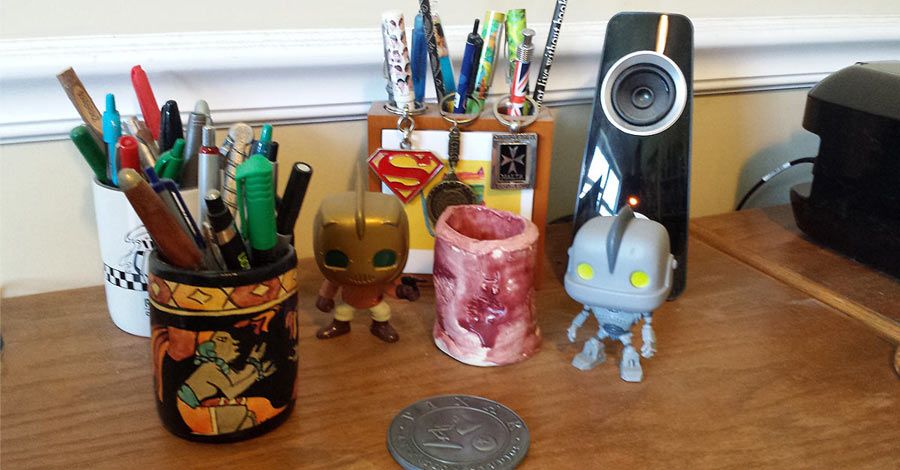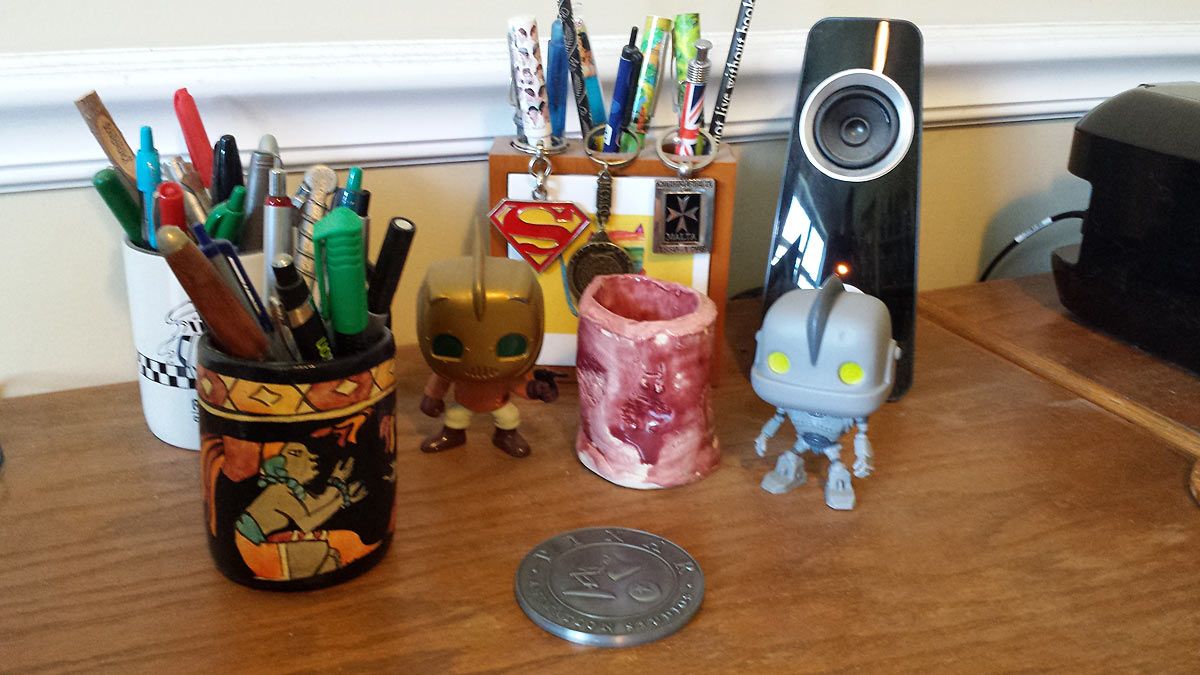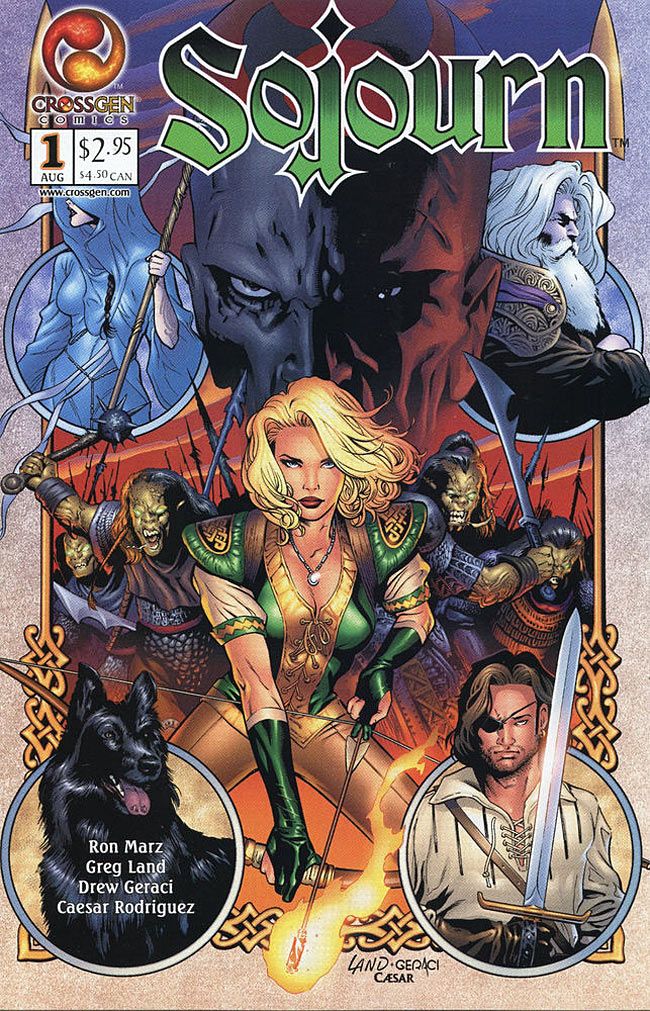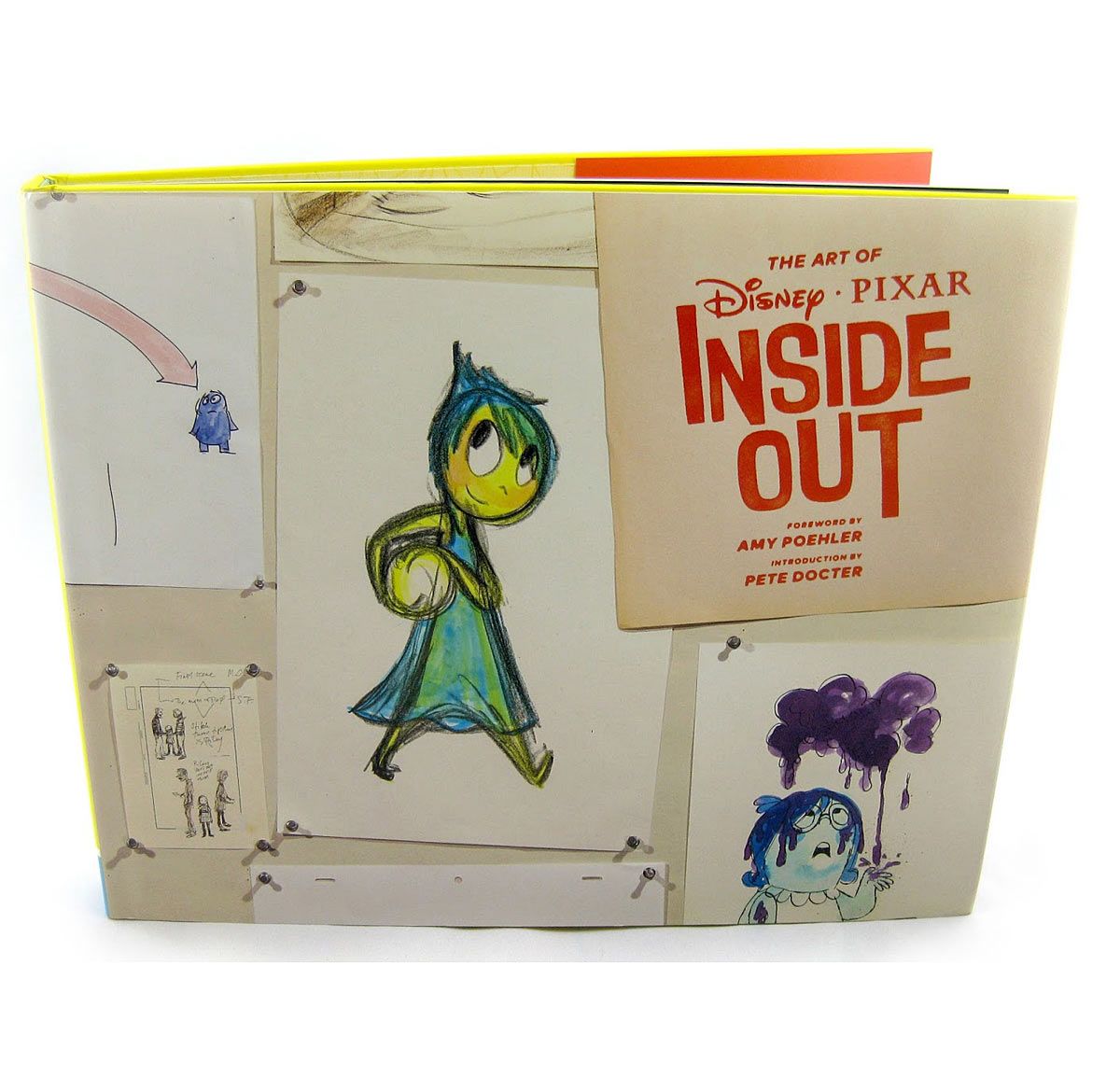The Writer's Guide to Working at Home
"You work at home? I could never do that, I'd just play video games and watch movies all day. How do you get any work done?"
If I've heard that once, I've heard some version of it two dozen times. And my answer is the always some version of: "If you don't do any work, they don't send you any money, so that's kind of an incentive." It's a glib answer, but also an honest one. Do the work, or in pretty short order, they don't give you any more work to do.
But the real answer, the more complex one, is that working at home is a skill that has to be developed. And it's not an arrangement that works for everyone. Some people need the structure of an office, or some other place they have to show up every day. I've known more than a few artists who needed that kind of structure, who needed to go to a studio environment so they could produce regular work. If they were at home, the work didn't get done.
I've worked at home for the vast majority of my career, almost always in a separate room, rather than set up at a desk in the bedroom, or perched at the kitchen table. I still work at the same oak desk I bought with my first checks from comics; hardwood, not that particle board crap. I love my desk, I love my office, and the vast majority of the time, I love my job. Certainly working at home, or working period, is easier when you're working on something you want to be doing.
When I was part of CrossGen Comics in Florida, I ended up doing more and more of my writing at home, rather than at the studio. I had my own office at the studio, and when I was writing there, the door was shut. But that didn't mean I was able to avoid all the interruptions, meetings and distractions that come with being in a building with a bunch of other people. Eventually, it became apparent that the best way to get scripts finished was to write them at home, because I could control that environment.
There are writers who write in coffee shops, bars, bookstores, hotel rooms. Different strokes and all that. For me, when I need finish something (as opposed to breaking down pages, or just pondering story), I need to be in my office. Here's what works for me.
Treat it like a job. I have some friends who treat their job in comics as a regular job, with set hours. Start at 9 a.m., half hour for lunch, stop at 5 p.m. I've never been able to do that, I can't turn it on and off like a faucet. But that doesn't mean I work just when I feel like it. Almost every morning, I get out of bed, have a cup of coffee, turn on my laptop, and get to work. I start in at it first thing in the morning, because the later the day goes, the less likely it becomes that I'm going get started and get enough work done. I also find that I do my best work, make the most progress, in the morning. Same routine for most Saturdays and Sundays too. Working at home means you're always at work.
The flipside is that you can take time off when your schedule allows, go see a matinee or whatever your diversion is. The point is, you don't get to work when inspiration happens to strike you, you work every day. Ideally, you have multiple projects to juggle, so if one's not clicking on a particular day, you can move on to another. The goal by the end of every day is quantifiable progress on something. My rule of thumb is at least five pages of script every day. If you reach that goal, you keep can usually keep your head above water. Every day you don't make that goal means playing catch up.
Limit distractions. This should be the most obvious one, right? I'm just as guilty as anyone else of not following this advice, but everybody has to find their balance. If you're going to do work... do work. Working in comics, in particular, brings necessary tasks that aren't specifically the work you're supposed to be doing: interviews, pitches, solicitation copy, answering e-mails, conference calls, Skype. All necessary, but none of them help you hit your deadlines. And as most comics work is paid as page rate, it's all stuff you're not compensated for.
Things like e-mail, Facebook and Twitter can be ongoing distractions (or so I'm told; I'm not on Facebook). Check them once every few hours, rather than keeping a window open.
Lastly, advice that pertains more to writers than artists: leave the TV off. While a lot of artists can "watch" TV while working (more like "glance up at" TV while working), I certainly can't, and I've never encountered writers who can. I can listen to music while I write, or a baseball game, but that's the extent of it. Television is too much of a concentration breaker.
Take a shower. That's right, you filthy pig, take a shower. Especially on a tight deadline, it can seem like the last thing you have time for is a shower. A lot of freelancers treat a shower almost as a reward for finishing a page or getting to certain point in a script. I seem to do most of my best thinking in the shower. Something about the white noise and the solitude.
Taking a shower and getting dressed are really aspects of treating this like a job. Most of the time, "getting dressed" for me involves shorts and a T-shirt, or jeans and a hoodie. The point is, I'm not wearing the same clothes I rolled out of bed in. It's about having a separation between work time and non-working time.
Get some exercise. Do something. Go to the gym, go for a bike ride, go for a walk. This job involves a lot of sitting on your ass. Too much, in fact.
As I've written before, we live on a lake, and I try to walk the 2.5-mile loop around it as often as I can. There's also an exercise bike in my office. Golf has become something of an obsession for me the last two years. I still play tennis when I can. None of it is enough, but you have to do whatever you can.
Getting some exercise also raises your energy level and releases endorphins. It's like having a Red Bull... without actually drinking that nasty swill. The best way to shake the afternoon doldrums is to work up a sweat.
Take a nap. Years ago, I used to take a nap almost daily. The three o'clock drowsy would hit, and I'd crash out on the couch in my office for an hour, maybe less. I'd wake up refreshed, ready to get back to work. It wasn't unheard of for me to turn off the lights in my CrossGen office, put my feet up on my desk, and catch a 20-minute power nap.
I don't nap much anymore. Seems like there's always too much to do, too many plates to keep spinning. But if you have the time, a short siesta is a beautiful thing.
Get out of the office. Sometimes the best way to do your work at home is to leave your house. My office is my comfort zone, but looking at the same four walls every day can become tedious. Ideally, I'd like to get out of my office once a week for a few hours, so I can be in a different setting and be around people (and observe them, honestly).
In practice, it's more like once every two weeks, but whenever I can, I go to a coffee shop or bookstore or someplace outdoors. I leave the laptop behind and break down issues on paper. The "finish" work gets done at home.
Get some inspiration. You need grist for the mill, whether it's television or movies, other comics or novels. Just working is the surest way for the work to get stale; it's a trap I've fallen into myself. Make time to read, make time to watch something that inspires you. I try to set aside an hour a day, although sometimes "this issue has to go to press now!" needs to take precedent. Your imagination is a machine. It needs fuel.
Get a good chair. You're going to spent a lot of time in it. The best chair I've ever had was a (too-expensive) Swedish import that I ordered through a Stickley furniture showroom. I used it until it fell apart, and I've never been able to find another one. In the ensuing years, I've tried different chairs, some pricey, some not. I'm pretty happy with the one I have now. The lesson I learned is that a good chair is not luxury, it's a necessity.
Know when to quit. As some wise fellow wrote, working at home means you're always at work. So you have to know when to walk away, and start again tomorrow. It's a difficult lesson to learn -- you always want to try to accomplish a little more, get another page done. But very often you end up pushing yourself past your usefulness, or at least past when you should be doing creative work. Chances are, the work you do when you're tired is sketchy at best, and takes twice as long as it should. Tomorrow morning, you'll do work that's twice as good, and you'll do it in half the time. Even now, I'm still not very good at knowing when to quit, but I'm trying.
Ron Marz has been writing comics for two decades, and thinks it's pretty much the best job ever. His current work includes "Witchblade" and the graphic novel series "Ravine" for Top Cow, "The Protectors" for Athleta Comics, his creator-owned title, "Shinku," for Image, and Sunday-style strips "The Mucker" and "Korak" for Edgar Rice Burroughs, Inc. Follow him on Twitter (@ronmarz) and his website, www.ronmarz.com.






